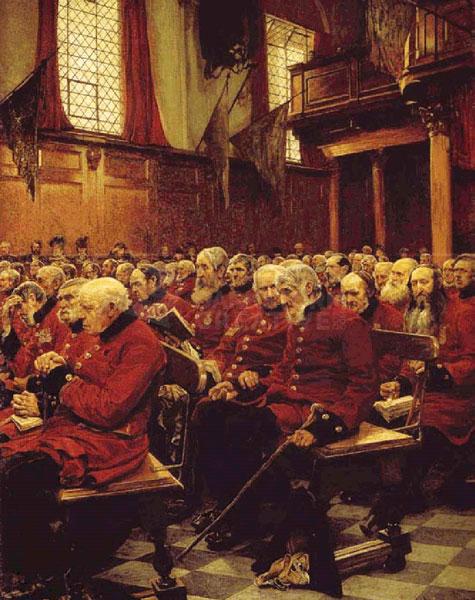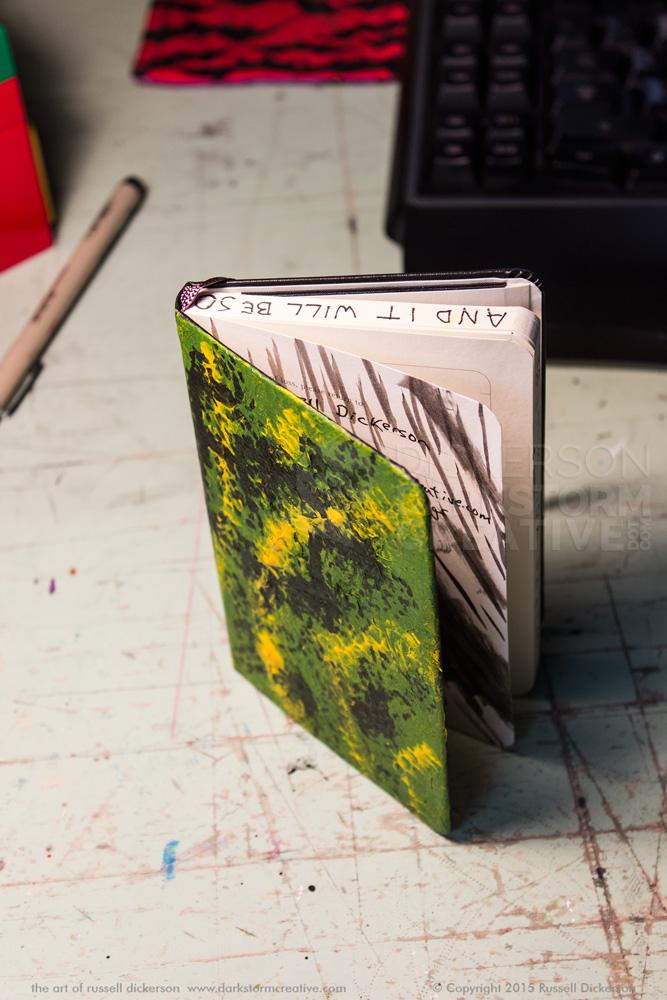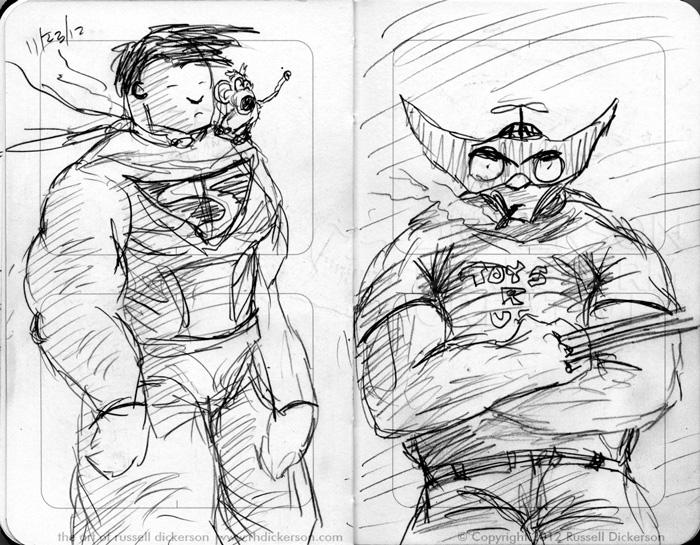I picked up James Gurney’s Imaginative Realism book last week, and I’ve been noticing certain styles that remind me of his work (see: Dinotopia). When I saw this one, I immediately thought of the techniques that Gurney uses in much of his work.
This is Sir Hubert von Herkomer’s The Last Muster -Sunday at the Royal Hospital, Chelsea (Oil, 1875, 84.5″ x 63″), and is a great example of realism and an almost illustrative idea. In the painting (explained here), a group of elderly soldiers sit together, with little realization that one of them has died.
The man in the center of the work, with the cane and leaning over slightly, has died. The man next to him is holding his arm (I assumed checking his pulse), with the beginnings of concern on his face.
I think what would be difficult in a scene like this is to show individuality enough that the idea that one of them has died isn’t lost. With each character needing the same outfit, with the same strong reddish tones throughout, von Herkomer has to work the composition and the individuals to show, in a subtle way, what has happened.
I think it works well for a few reasons. First, each soldier, despite the strong similarity in age and in uniform, is given a unique feel. Each has a different face, a certain lean, a subtlety of angle, enough that they give a sense of true group of men instead of just a background of characters.
Using composition, von Herkomer arranged the work to highlight the dead soldier as well. He’s placed in the center of the work, with a simpler, more open area closer to the viewer. The angles of the flags and architecture above tend to point towards him as well, as well as the angle of the floor tiles. The soldiers in front and behind him are spaced further away then the rest of the group is from each other, something that catches the eye and centers it on the dead soldier.
It’s certainly a work of subtlety, and requires the viewer to really take in the whole work. Even without being in a scene of battle, you get the sense that they lived as soldiers for their whole life. In the subtlety is a quiet story, one where, after a lifetime of discipline, their last muster must be strict and ordered as well.
Opinions?



